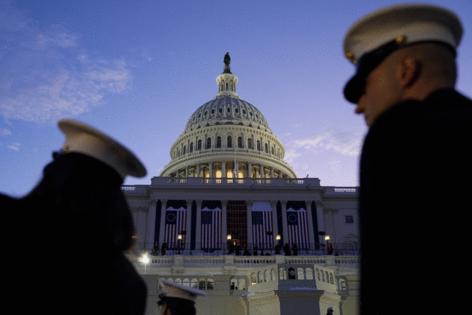Commentary: Is Trump really going to practice military restraint?
Published in Op Eds
The three popular pillars of Donald Trump’s electoral success have been grievances about immigrants, unfair trade practices by other countries, and American “forever wars” overseas.
The last one of these beefs was legitimate and fueled by the interventionist U.S. superpower’s major quagmires or debacles in Cuba, Vietnam, Cambodia, Laos, Iran, Lebanon, Somalia, Iraq, Libya, and Afghanistan.
As an example, a recent op-Ed piece by John F. Sopko, who, as special inspector general for Afghanistan reconstruction since 2012, chronicled the profligate waste of lives and money during the latter half of the two-decade U.S. fiasco in Afghanistan, convincingly argued that that bureaucratic incentives in the U.S. military and other agencies to claim success rendered the truth of failure to long be kept from American taxpayers. That problem can be found in the other American catastrophic failures as well.
To his credit, during his first presidential term Trump had concluded the Afghan War was a loser, signed an agreement with the Taliban to withdraw U.S. forces from Afghanistan, but failed to carry it out before he left office. Joe Biden, his successor, after a short delay, agreed with Trump about the war and took a big hit in the popularity of his new administration when the U.S.-supported Afghan regime collapsed rapidly during the American troop withdrawal, leading to some chaos and more American and Afghan deaths.
Biden’s bad experience is why politicians and bureaucrats stay in foreign quagmires; because they don’t want to be tarred with the almost inevitable friction and blame that comes with cutting national losses and exiting.
Thus, during his second term, because of his prior campaign rhetoric about ending forever wars, Trump might be expected to be leery of using threats or intimidation that could lead to armed conflict or even a long-term military bog abroad.
Yet during the interregnum between his recent election and inauguration, he has complained about high fees to transit the Panama Canal and threatened to take it back (presumably with military force since the Panamanians are unlikely to volunteer giving back the Canal Zone), menacingly demanded to buy Greenland, and joked about making Canada the 51 st state.
Finally, during the campaign, Trump was asked by Fox News about launching cross-border military attacks on Mexican drug cartels and replied, “Mexico is gonna have to straighten it out really fast, or the answer is absolutely.” Mark Esper, one of Trump’s defense secretaries during his first term, claims Trump asked for military options against the cartels and was barely talked out of ordering them. Trump’s current aides are building the case for employing such drastic options during a second term.
Most of Trump’s implicit or explicit threats so far have been directed at much weaker countries in the Western Hemisphere. Yet during his first term, he also threatened countries in East Asia and the Middle East and took aggressive action in the latter region. Before doing an about face and trying to negotiate with North Korean leader Kim Jong-un, Trump had implicitly threatened nuclear war with the hermit kingdom by saying that North Korea would be “met with fire and fury and frankly power, the likes of which this world has never seen before.” It also was reported that Trump privately discussed the possibility of using a nuclear weapon on North Korea and blaming it on another country.
In the Middle East, Trump rashly canceled the multilateral agreement with Iran to limit its nuclear program in exchange for the relaxation of economic sanctions and later assassinated the second most powerful Iranian official when he visited Iraq, thus roiling relations with both countries. His proposed appointees for secretary of defense, Pete Hegseth, and ambassador to Israel, Mike Huckabee, oppose Palestinian self-determination and seem to embrace a “Greater Israel.” This view usually advocates annexing the West Bank and resettling Gaza after Palestinians are removed. Finally, Trump has vowed to put fewer limits on weapons exports to Israel than even the few the Biden administration imposed.
Thus, in a second term, even if Trump avoids U.S. military quagmires on the ground, he may still take or allow allied countries to undertake aggressive military action.
Let’s hope his macho bluster against friendly countries in the hemisphere or adversaries further abroad is just to get some sort of negotiating advantage, because even limited military actions — such as, cross-border attacks against Mexican drug cartels, especially without the Mexican government’s consent —could turn into disastrous bogs if things don’t go well; Vietnam, Iraq, and Afghanistan come to mind.
____
Ivan R. Eland is Senior Fellow at the Independent Institute and Director of the Independent Institute’s Center on Peace & Liberty.
___
©2025 Tribune Content Agency, LLC.




























































Comments